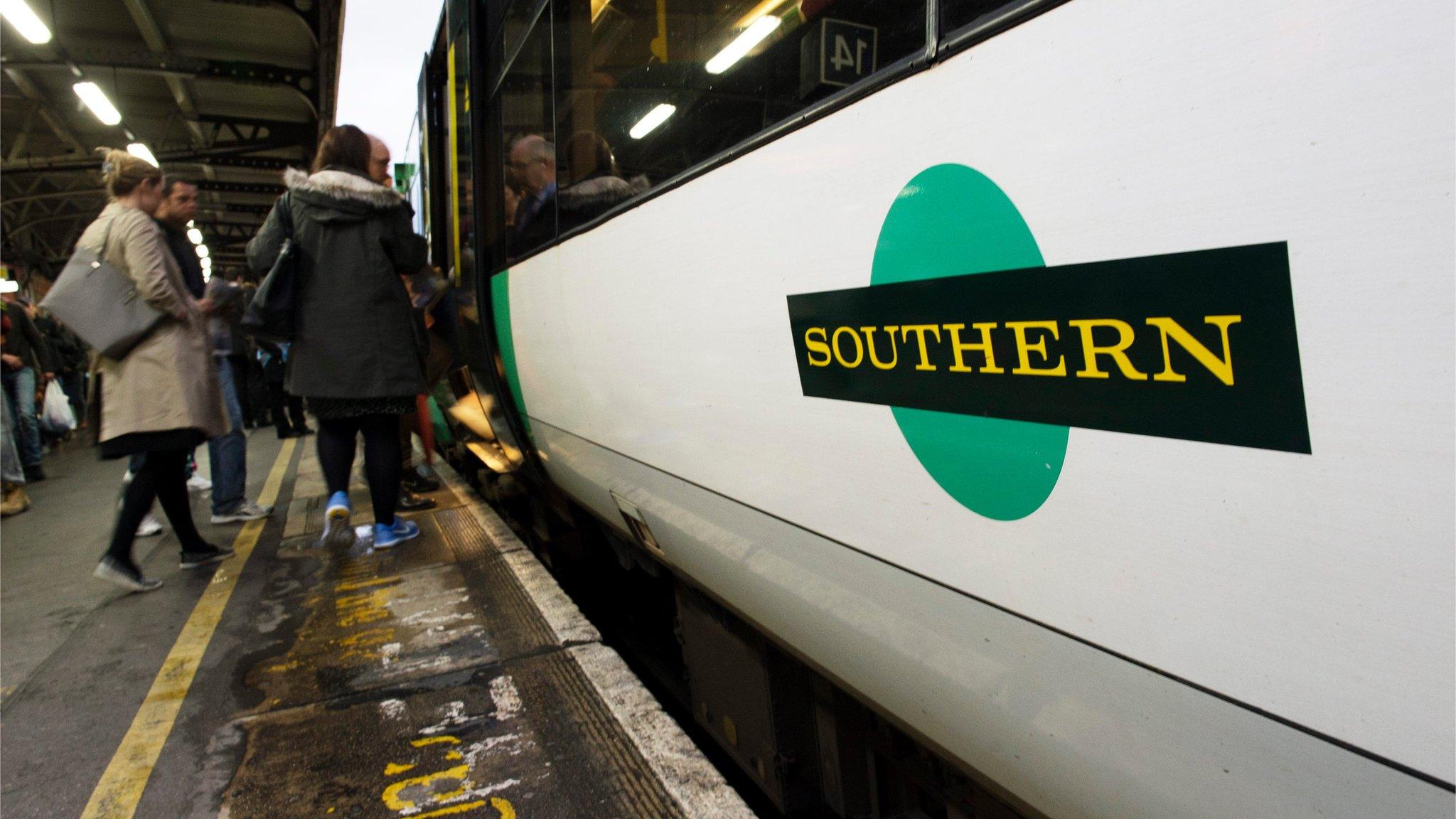Southern rail strike: GTR taking legal case to Supreme Court
- Published
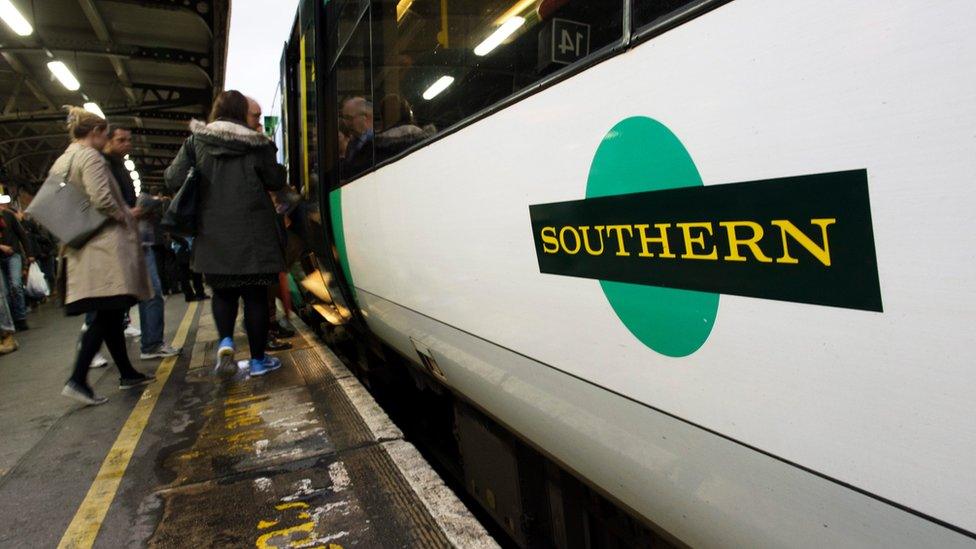
Southern's parent company Govia Thameslink has apologised for months of misery
Southern rail bosses say they will take the Aslef union to the Supreme Court over its industrial action on the train network.
Drivers are continuing a 48-hour strike, with another walkout planned for Friday. Almost all of its 2,200 daily services have been cancelled.
Further strikes by Aslef have been called for 24, 25 and 27 January.
Southern's owner Govia Thameslink Railway (GTR) lost a court case and an appeal last year to halt the strikes.
A statement said it was "determined to protect its passengers and its business from unlawful industrial action".
It added: "GTR is therefore prepared to continue its legal claim to the Supreme Court, as it believes that it has an arguable case that the industrial action is unlawful under EU law."
'Door always open'
Southern has insisted it will not back down in the dispute over who should open and close train doors.
Mick Whelan, the general secretary of Aslef, earlier said it had not had any conversations with Southern this week, but its "door was always open".
"I think it's the policy of both the DfT and the company that they won't talk to us in a week of action," he added.
"If they had come to us for talks, or been willing to talk to us, we would have spoken to them.
"We've never ever refused a meeting and will not be doing so in the near or anytime in the future."
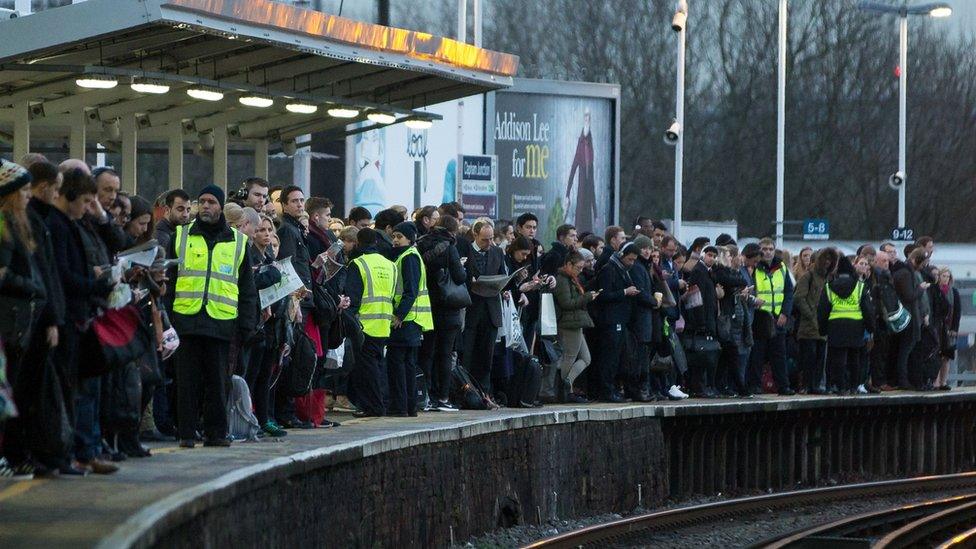
Commuters have suffered months of disruption and cancellations due to the ongoing strike
Charles Horton, chief executive of GTR, said the firm had met Mr Whelan a week ago and made a "formal, comprehensive offer" to settle the dispute, but was still awaiting a response.
"Active lines of communications are open with both Aslef and the RMT leadership and our door remains open to renewed talks," he said.
"This pointless dispute has to end, and end now."
'Waste of money'
In December, GTR lost its appeal against a High Court judge's refusal to grant an injunction blocking strikes by train drivers.
Taking the case to the Supreme Court will be its final chance to launch a legal challenge.
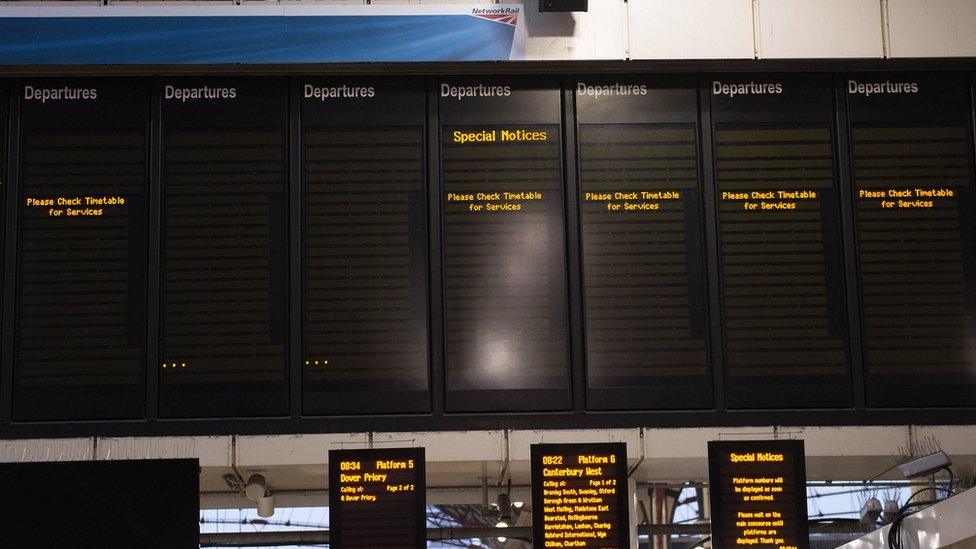
Southern has been unable to run the majority of its services during the Aslef action
Aslef described last month's legal action as a waste of taxpayers', shareholders' and passengers' money.
There has been no immediate comment from the union to the new legal move.
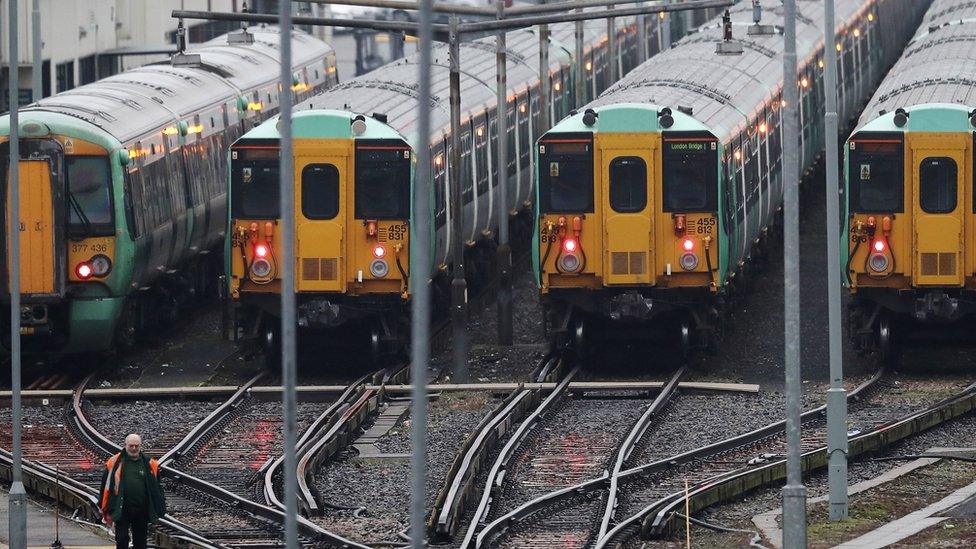
The RMT has been involved in industrial action since last April.
The latest Aslef strike ends at midnight. Members are also operating an overtime ban.
The RMT, whose members are mostly conductors, represents 12 drivers who are also taking part in the Aslef action.
The long-running dispute centres on Southern's decision to turn guards into supervisors. In this role they would no longer be responsible for opening and closing carriage doors - this duty would become the responsibility of the driver.
The RMT has been involved in industrial action since last April.
- Published11 January 2017
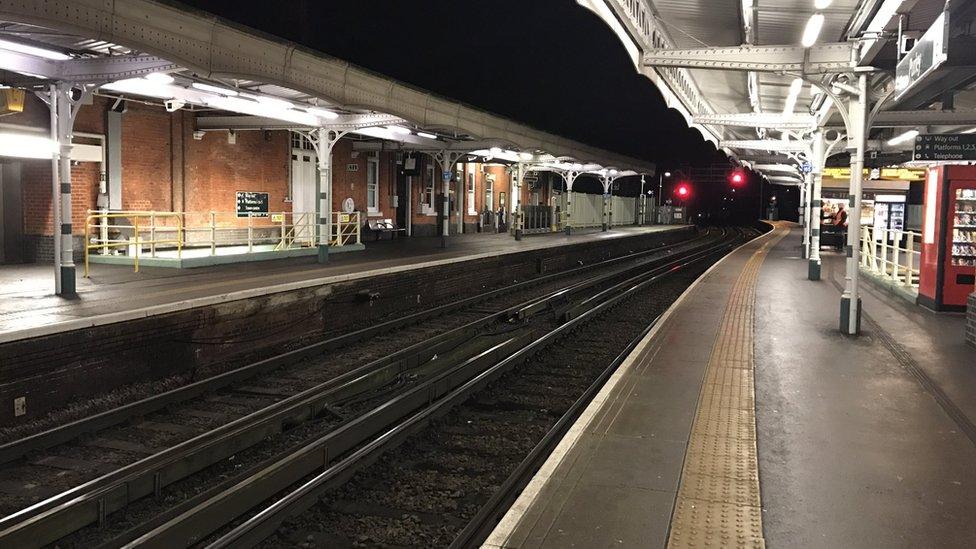
- Published10 January 2017
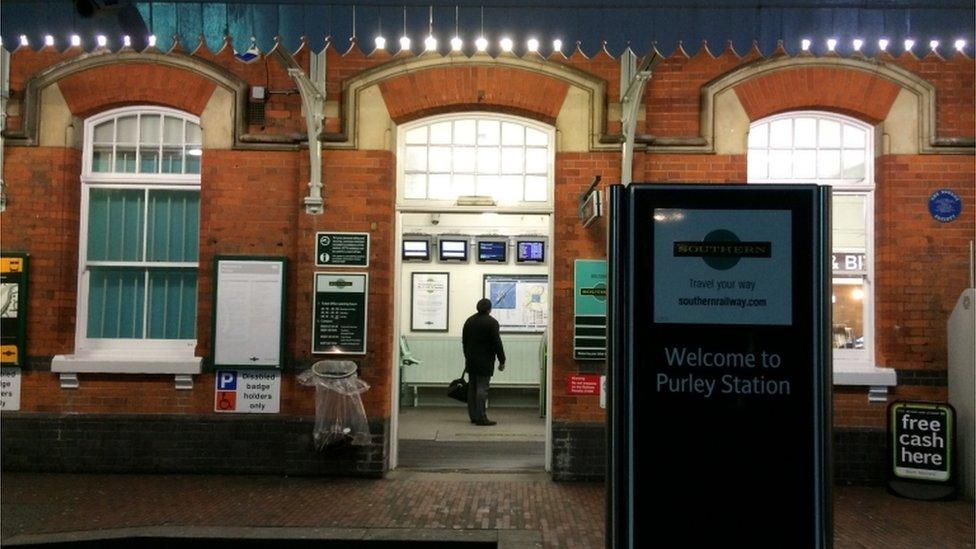
- Published9 January 2017
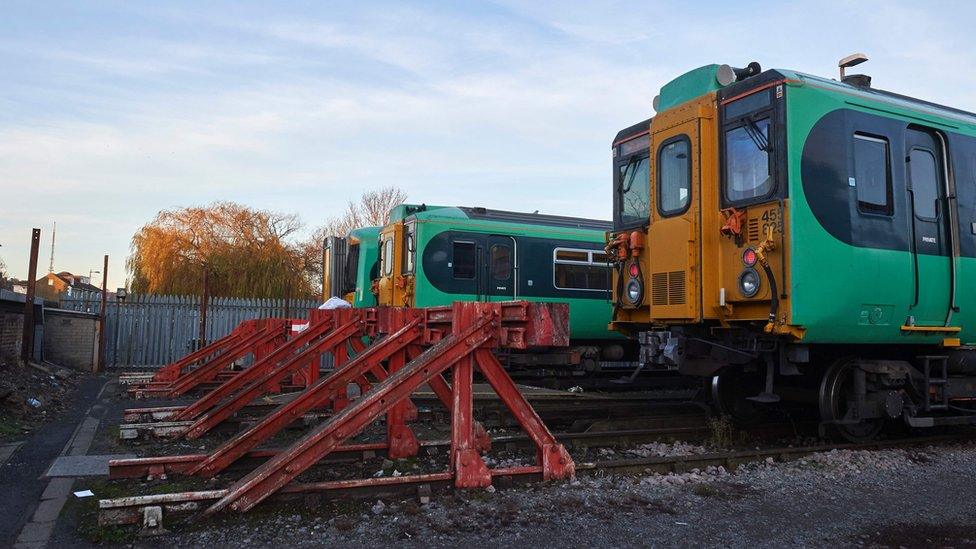
- Published5 January 2017
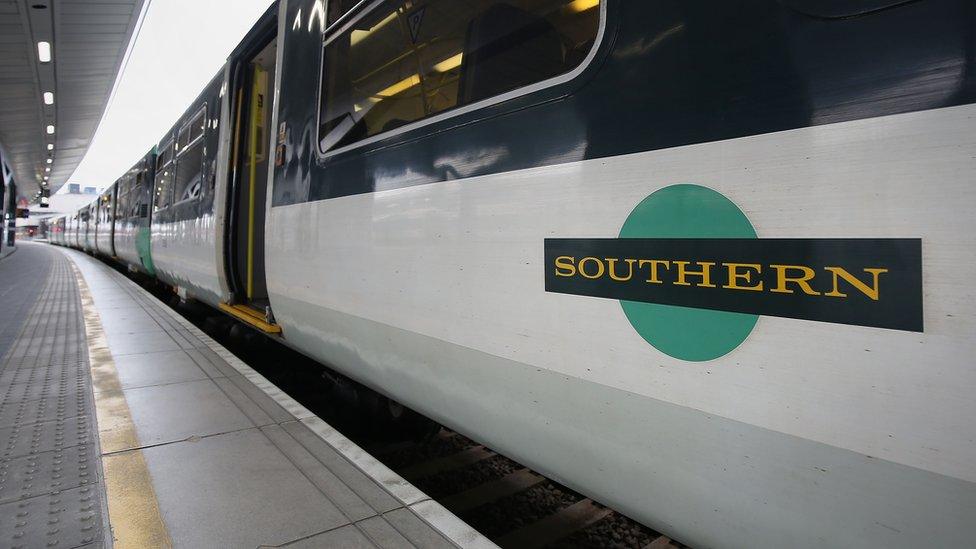
- Published4 January 2017

- Published19 January 2017
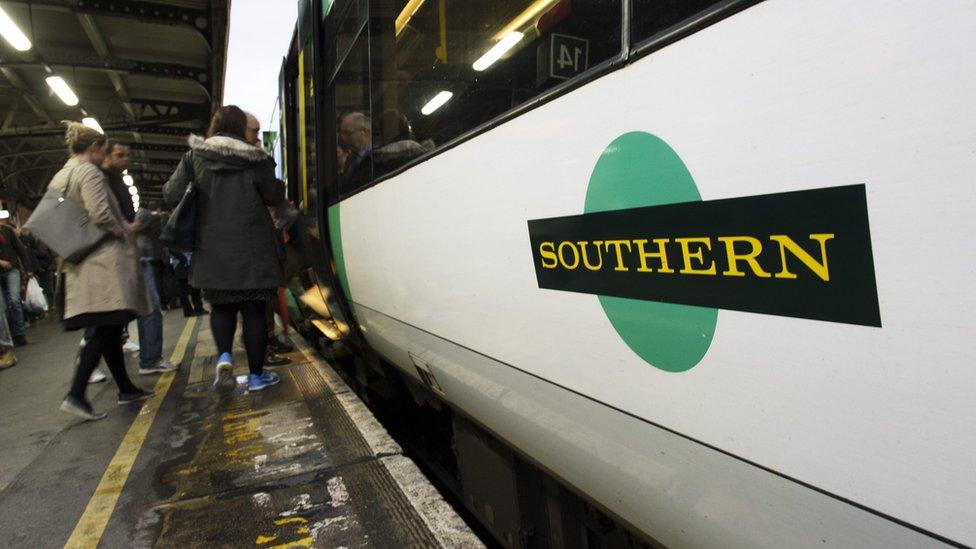
- Published13 December 2016
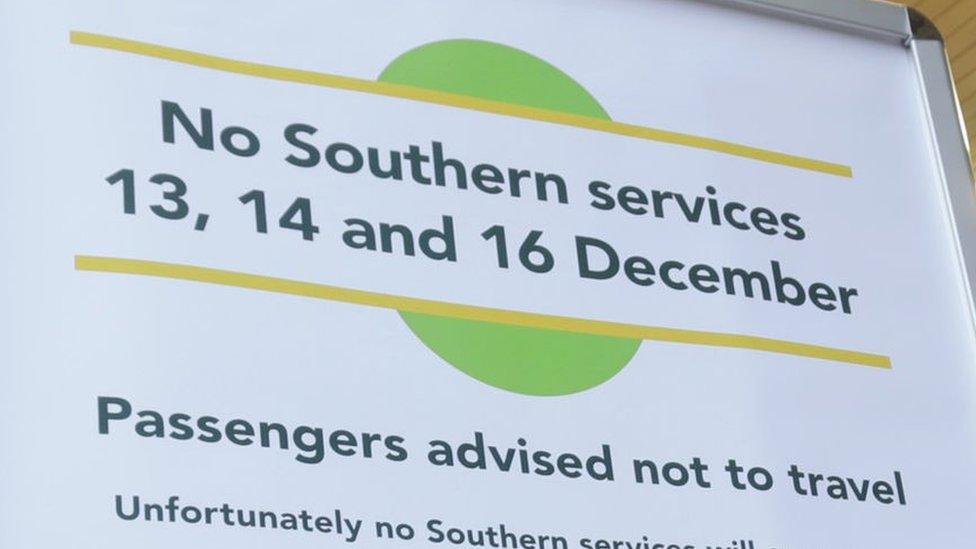
- Published13 December 2016
- Published9 December 2016
